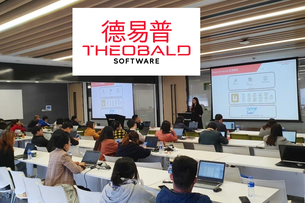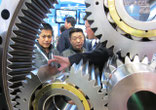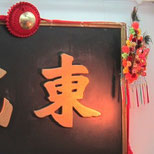
Chinese naming
Nomen est omen? We can help you develop the perfect Chinese names that are:
-
Relevant to your product or image
-
Short and easy to remember
-
Easily pronounced in all major dialects
-
Positive connotation (no negatives in all major dialects)
-
Legally available
China’s completely different linguistic system poses a challenge for Western companies to find proper Chinese names, whether for the company itself or its products, brands or even executives. Many simply translate the names phonetically. These sometimes sound awkward and are difficult to remember.
As the Cantonese saying goes, to be given a bad name is worse than to be born with a bad fate, talk to us before you name your company or brand in Chinese!
In cooperation with renowned trademark lawyers in China we can also take care of the trademark registration for you: preliminary check - registration - monitoring!
Telling "A Tree Story" in the Chinese language – a Chinese brand name for TEAM 7

Intelligent ceramics – Chinese naming for the 3D printing system provider Lithoz

To enter the Chinese market, you need in-depth market knowledge, a clear strategy and plan, a reliable sales partner... and, last but not least, a suitable Chinese brand name. (Why is a Chinese name important? Read this blog.) The Chinese name for Lithoz, 俐陶智 (pinyin/transliteration: Lì Táo Zhì), created by Zentron, is distinctive, relevant and at the same time phonetically similar to the original name.
Nurturing and retaining purity – Biogena in Chinese

In order to make Biogena approachable for Chinese consumers, Zentron created a Chinese brand name: 葆淳 (pinyin/transliteration: Bǎo Chún). In addition to the phonetic similarity to the Latin name, the Chinese name also embodies the unique selling points of the brand.
(Why is a Chinese brand name important and how can you create one? Read this blog.)
German virtues easily popularised - Chinese name for Theobald Software

Before the German software provider Theobald entered the Chinese market, founder Patrick Theobald was looking for a suitable Chinese brand name that would represent the company's values and resemble the phonetics of the German name. The name 德易普 (pinyin/transliteration: Dé Yì Pǔ) created by Zentron fulfilled both criteria.
Seven myths about B2B marketing in China

European brands are popular in China. While country’s economy is booming, it is not easy European companies to build their success on the market.
China has taken over Japan and become world’s second largest economy. It is on its way to take over USA as the number one in world trade, according to experts. Many European SMEs are still testing the waters, with various degrees of success. What makes China so different? What are the common, sometimes wrong, perceptions of the market? How can companies make the right move into China?
Does your company or brand have the right Chinese name?

“A Er Pai Mai Rui De”, “Ai Bi Ai Mu Ge Lai Fen Be Ge“, “Ge Lin Ce Ba Ke“, “Ai Si Ta Ai Mu Si Nai Te“, “A Te La Si Ke Pu Ke“…
It doesn’t only sound exotic to you; a Chinese businessperson or consumer would feel the same way too. The names above are just a few examples of Chinese names of European companies. They are pure phonetic translations of the European names and have absolutely no meaning in Chinese.
